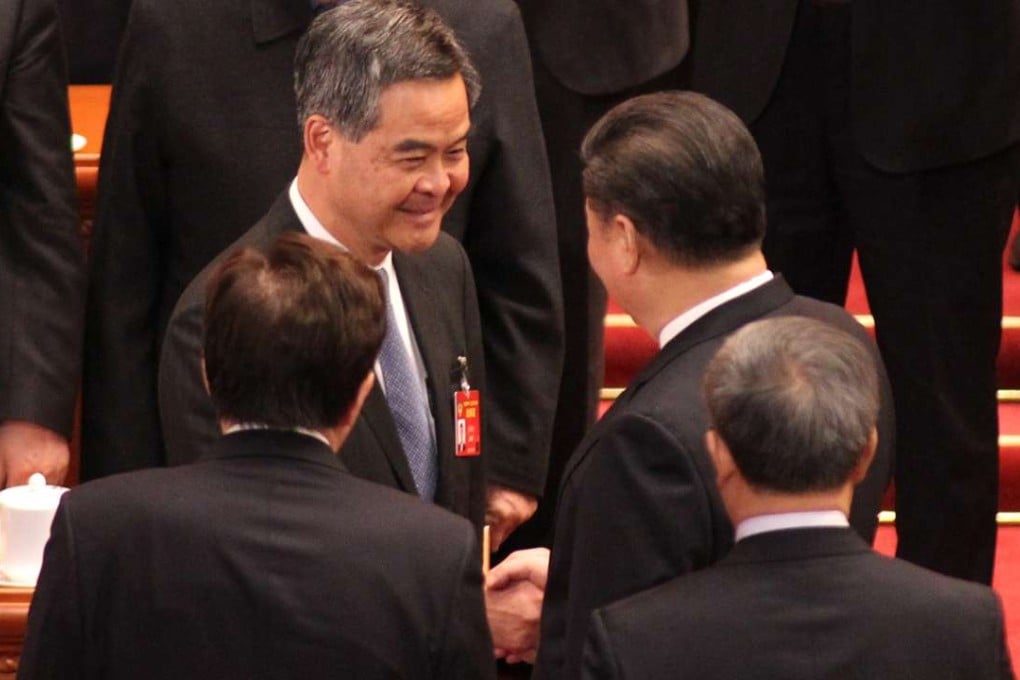Hong Kong Chief Executive Leung Chun-ying elected to top national body
Handshake from President Xi Jinping cements unprecedented dual role for chief executive

Hong Kong Chief Executive Leung Chun-ying was officially elected a vice-chairman of Beijing’s top political advisory body on Monday, giving him the unprecedented dual role of state leader and the city’s top official.
An eye-catching scene also happened as President Xi Jinping shook hands and had a 45-second chat with Leung after he was elected on the last day of the annual Chinese People’s Political Consultative Conference (CPPCC) plenary meeting.
The other six Politburo Standing Committee members also shook Leung’s hand one after the other.
“I hope my position as CPPCC vice-chairman ... will help society in Hong Kong make better use of opportunities offered by sustainable developments in the country,” Leung said.
A total of 2,066 delegates voted in favour of a motion to name him a vice-chairman, with 13 against and 16 abstaining.